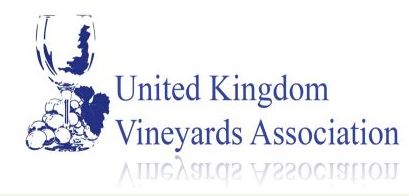Still Wines Dominate in UK Wine Industry's National Competition
The industry's annual national wine awards - The English
& Welsh Wine of the Year Competition – have delivered some of the best ever
numbers of medals.
Despite the marginally lower number of entrants compared to
last year – reflecting the slightly lower production in 2015 – the number of
Gold medals was nearly 60% up and the highest over the last 5 years of the
competition. Nonetheless, the competition has seen a progressive growth in
entrants over the years, this year attracting 305 wines from 94 producers from
across England and Wales.
258 medals were awarded across the style categories,
representing nearly 85% of all entries, which included 32 Gold, 121 Silver and
105 Bronze medals. Overall, still wines dominated the entries and medal gains,
with 216 still white, rosé and red wines entered, gaining just over 70% of all
the medals. 87 sparkling wines were entered, representing just under 30% of the
medals.
Organised and run by the United Kingdom Vineyards
Association (UKVA) and for a second year sponsored by Waitrose, the Competition
is an opportunity for producers of all sizes and from across England and Wales
to compete against each other. This year's entrants included some of the UK's
largest producers to smaller and first-time producers. The wines were judged
over two days at Llanerch Vineyard near Cardiff by a team of five Masters of
Wine and marked to international professional standards. Chaired by David Bird
MW, the panel also comprised: Robin Crameri MW, Rebecca Hull MW, Angela Muir MW
and Patricia Stefanowicz MW.
The Gold medals alone reflected the diversity of size and
style now produced in England as well as a wide geographic spread. Successes
this year included a still white from one of England's most northerly
vineyards, Leventhorpe Vineyard, and a sparkling wine from a one acre vineyard
in Hampshire – East Meon Vineyard.
The different style categories of wines and volumes produced
are acknowledged in the13 Trophies that are also awarded.
Once again it is wines produced from the UK's top three most
widely planted grape varieties – Chardonnay, Pinot Noir and Bacchus – that
dominated the trophies awarded, with Bacchus a clear winner. Three trophies
were awarded to a 2015 Bacchus from Norfolk's Winbirri Vineyard, which scooped
the Trophy for Most Outstanding Large Production Wine from 2015 vintage, Most
Outstanding Single Variety Wine and Most Outstanding Unchaptalised Wine.
Further Bacchus success was won by Furleigh Estate in Dorset
whose 2014 Bacchus Fumé won Most Outstanding Oaked White Wine and Most
Outstanding Large Production Wine (Any year other than 2015). Additionally,
Camel Valley Bacchus Dry 2015 won the Most Outstanding Large Production Wine
(over 10,000 litres).
The Most Outstanding Sparkling Wine Trophy was won by Dorset
sparkling wine producer Langham Wine Estate, further continuing its competition
success, having won the same trophy last year with another wine from its
stable. The Most Outstanding Sparkling Rosé Wine Trophy was won byHattingley
Valley in Hampshire. Both wines are produced with the three traditional
Champagne varieties.
Pinot Noir was also a proven winner in the still wine
stakes, with Kent's Gusbourne Estate Pinot Noir 2014 taking the Most
Outstanding Red Wine, with the Most Outstanding Still Rosé Wine trophygoing to
first time producer Oxney Organic Estate from Sussex.
Sweet wines also have their own trophy - Most Outstanding
Sweet Wine – which this year was won byDenbies Wine Estate Noble Harvest 2014,
continuing the outstanding success of earlier vintages of this wine in a number
of competitions.
A Best Presented Trophy is awarded to a bottle for its
overall presentation – this year the winner isFenny Castle Barrel Fermented
Ortega 2015.
This year, to mark the competition judging having taken
place in Wales, a Welsh Wine of the Year Trophy has been sponsored by the Welsh
Government. The winner of this award is Parva Farm Vineyard Dathliad 2013, a
sparkling wine from Tintern in South Wales.
David Bird MW, Chair of Judges, and a long standing member
of the judging team, commented on how impressed he was by the standard of
entries. “This year the competition went very smoothly, despite the large
number of wines. The team of judges worked extremely well. They all taste
internationally and apply international standards.
“The high level of medals achieved is a measure of the high
standard that winemaking in the UK has reached. The joy of the competition this
year is that we were struggling not to award golds everywhere!”
Commenting on the competition, Barry Lewis, CEO of UKVA
said: “This year's high number of entrants into the competition reflects a
growing confidence within the industry. I'm delighted with the results and
pleased that the judges noted the overall consistency of quality. I'd like to
thank the Welsh Vineyard Association and Llanerch Vineyard, for being amazing
hosts.”
There are three remaining trophies yet to be unveiled and
will be announced at the industry's annual awards lunch, taking place on 12th
July at Vintners' Hall: the prestigious Winemaker of the Year (The McAlpine
Trophy) and the Wine of the Year Trophy (The Gore-Browne Trophy) together with
the English Wine Producers Communicator of the Year Trophy.
The results in full will shortly be available on
www.englishwineproducers.com and www.ukva.org.uk.
If you want to find out more about Chef Wise go to
the Chef Wise web site just follow the links below.




Comments
Post a Comment